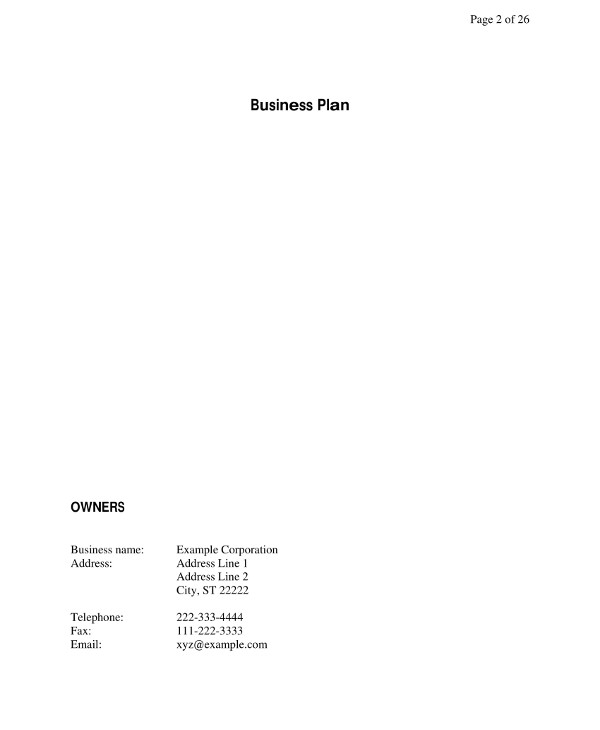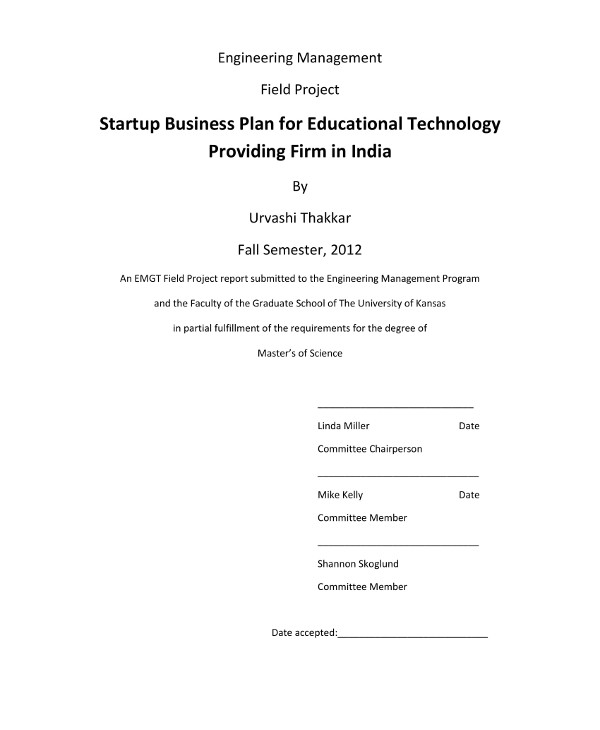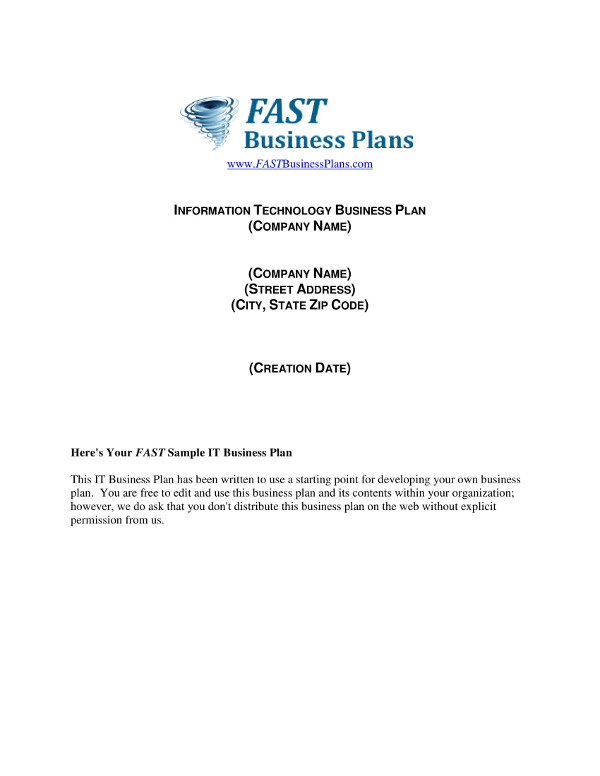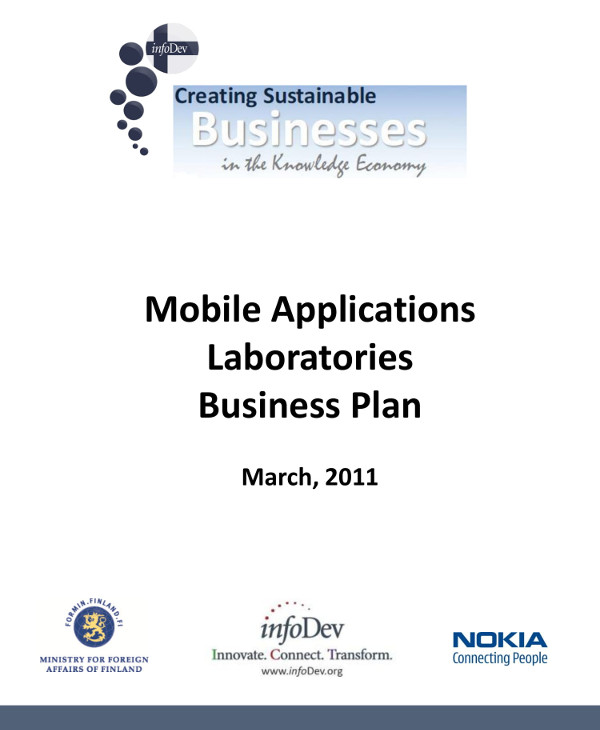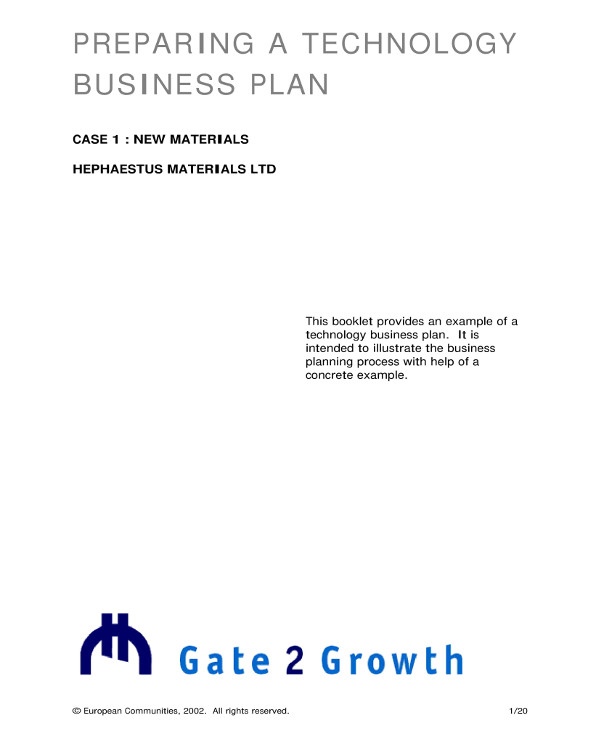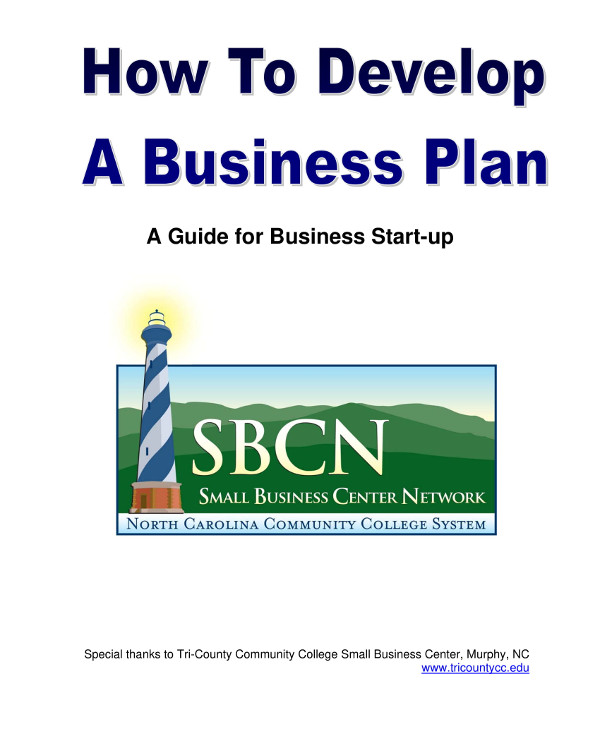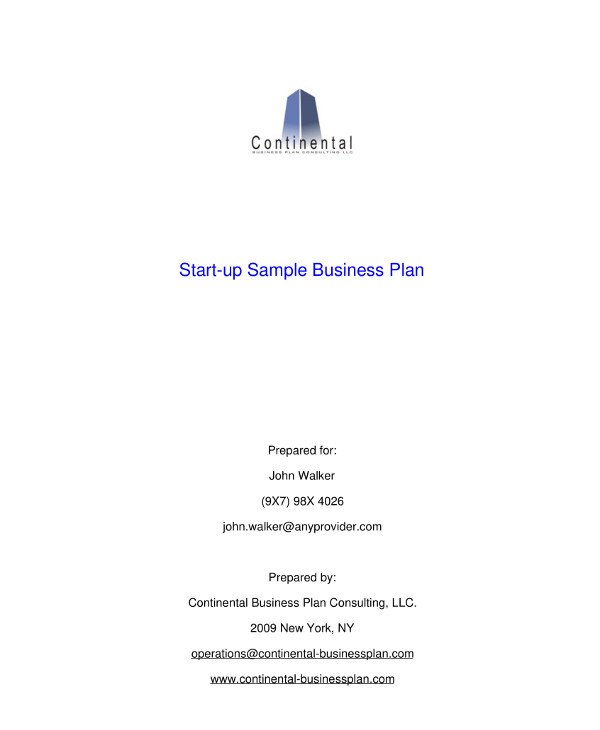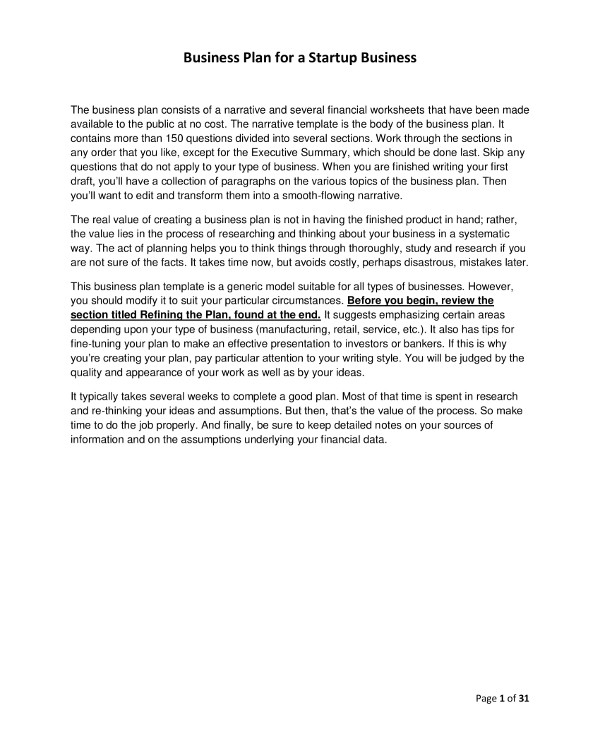12+ Tech Startup Business Plan Examples to Download
Many of us have this wild dream of becoming a hot-shot CEO with a cup of overpriced coffee on one hand and the latest smartphone on the other, but to get there, you still need to start fresh. You may also see business plan outline with examples.
Having a good business idea is one thing, but turning this vision into a reality is another matter that many individuals refuse to invest on when the struggles they need to go through become known.
Technology Startup Business Plan Template
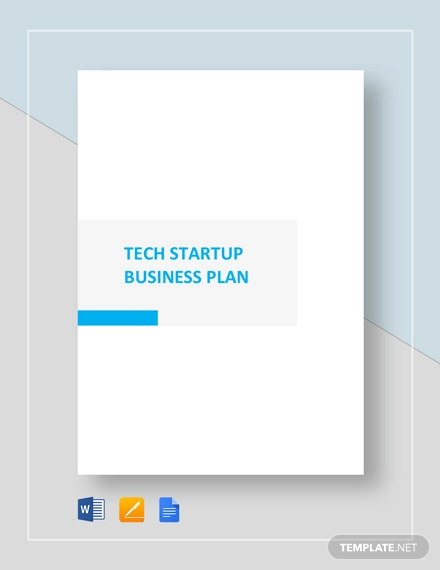
Tech Startup Business Plan Example Template
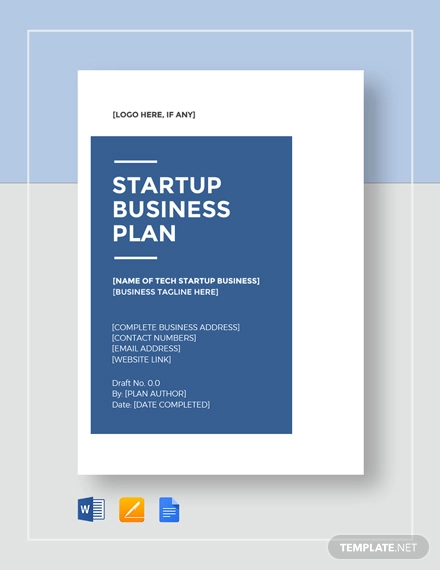
With the many opportunities and promising business ideas to choose from, business owners are starting to recognize what technology can offer them not just for personal use, but as a corporate investment as well.
Amidst the likes of Apple, Samsung, and Sony comes the wide variety of tech startups emerging in the marketplace at rapid speed. So in this article, we discuss what it takes to become a successful tech startup with the help of a simple business plan.
Tech Startup Business Plan Template

Business Plan for Startup Example
Educational Tech Startup Business Plan Example
What Is a Tech Startup?
With the wide use of technology being more prominent now than ever, many tech startups are making the attempt to make a breakthrough in the competitive market with their innovative (and sometimes peculiar) product and service offers for consumers to enjoy. You may also like business plan guidelines examples. A tech startup is a company whose purpose is to bring various forms of technology-based products and services to the market. These companies are set to deliver a wide range of new or existing technology products or services in a variety of ways.
They come in the form of a company, a partnership, or a temporary organization that is designed to search for a repeatable and scalable business model to launch. With technology being an essential factor of our day-to-day lives, startups aim to bring innovativeness, scalability, and growth through their creations. Though it might be a while until robots and artificial intelligence completely replace manual labor, we can expect a lot from these promising tech startup ideas, especially those with an exceptional business plan in place. You may also see business operational plan examples.
IT Startup Business Plan Example
Mobile Tech Startup Business Plan Example
10 Essential Elements of a Tech Startup Business Plan
Every tech startup is different, with each company specializing in one thing that’s fairly different from the other. But if there’s one principle that every startup company needs, then it’s the universal wisdom of experience. You may also like to learn how to create a business plan. Truth is, many companies have attempted to try new things but failed while at it. Others have pivoted and re-branded hoping to get another shot with investors and clients, only to come out empty-handed.
Transforming your big idea into a revenue-generating reality can be a daunting experience of disappointments and rejections. But then again, in order to succeed in business (and life in general), you need to learn from these experiences to come out a million times better. The following items explain what makes a tech startup successful and the factors that you need to keep in mind when constructing your business plan:
1. Think Highly of Yourself.
This may sound like an egoistic move, but don’t take it the wrong way.
As a startup business, it wouldn’t hurt to pretend you’re a lot bigger than you actually are. They say that this can attract the type of energy you hope to achieve. Acting like a bigger company will also allow you to grow into the efficiencies it gives you. It also requires you to work just as hard as the big dogs do. Not to say you’re prohibited from having a fun work environment, as you do want to keep employees happy for them to stick around long enough for the company to prosper, but insisting on a disciplined execution will definitely keep the business afloat. This will make it easier to partner or collaborate with other successful brands who might just offer you your big break. You may also check out market analysis business plan examples.
2. Choose the Right Partners.
As a startup founder, choosing the right partners to complement your skill set and realize your vision is crucial to corporate success. Partnerships can be a tricky business, especially when it has become so easy for offshore or outsourcing companies to squeeze the money out of a vulnerable (and rather gullible) startup. It’s best to do your research on existing companies and startup founders, preferably those who have been a part of a successful company in the past, before you engage in a potential deal. You may also see network marketing business plan examples.
3. Create a Software-as-a-Service (SaaS) Plan.
You know how TV shows come out with pilot episodes first before they can release an entire season of the show? With the same concept in mind, experts believe that it’s always best to start selling parts of your product before completing a full platform. Getting market validation early on in your startup’s growth stage will give an idea of what your target customers are looking for in a product or service. This will also help you start building revenue as you continue to understand how the entire process works. You may also like how to make a business plan.
They also believe that while a good business idea is important, so is the way it is presented to investors and clients. Allowing your prospects to see your capabilities will work wonders for your startup along the way. You may also check out importance of business plan.
4. Go for the Standout Pitch.
It’s always hard to make a pitch with a potential investor. With the dozens of business ideas that come their way, standing out from the “good” and the “pretty good” is crucial to getting noticed. Your pitch with a prospect will only end with one of two ways: you either get accepted or declined. Naturally, getting accepted is the only thing that matters most. You might be interested in free business plan examples.
Since it may be difficult to identify the things that you should do and should not do for your pitch, it’s a good idea to speak with entrepreneurs with businesses that did not make it. It’s easy to focus on the successes, but not many seem to recognize the value of failures as well. This provides you with enough insight regarding how and why a company or an idea did not make the cut. You may also see bookkeeping business plan examples.
Professional Tech Startup Business Plan Example
Tech Startup Business Plan Example
Tech Startup Business Plan for Students Example
5. Prepare to Be Rejected.
You’ve probably heard this a thousands times before, and it couldn’t be emphasized enough. Rejection will always be a possibility, but just because a couple of investors have said “no” to you before, don’t use this as a reason to give up.
Getting the first check is the hardest, which is why many successful business owners suggest to spend the time building VC (Venture Capital) relationships before funding, and to continue networking until you have secured the necessary funds. The rejection will definitely take a toll in your spirit and drive to move forward, but you need to learn to get back up and rise above the negativity for a better and brighter future. You may also see hotel business plan examples.
6. Keep It Innovative.
There should never be a reason to stop building. You can always turn a “good” idea into something “great.” And even if it feels like you’ve reached the peak of greatness, there will always be room for more improvement.
Take tech giant Apple as an example. Even when people thought that the Touch ID of the iPhone 5S was a phenomenal feature, Apple released a facial recognition feature through Face ID which was specially designed for the iPhone X. The system was designed just a few years after the Touch ID, which proves just how the company continues to uphold the value of innovation through their products. You may also check out advertising and marketing business plan examples.
7. Aim for a Deliverable Product.
Startup founders tend to be optimistic and idea-driven, yet, they can’t seem to confine to the status quo. Though adapting to market demands is also important, picking a single area of innovation and focusing on a product that’s better than anyone else’s is key. You need to make sure you’re moving toward the right direction by understanding the exact things that your target market wants. You may also like business plan examples.
However, you need to work quickly. Trends fade and people get bored too easily. If you want to prosper, start delivering products as soon as you can and stay focused on making them a hit.
8. Put Pen on Paper.
Even after an investor has made a vow to work with you, you still need to put it in writing. Contract documents are a real thing, and you need to be responsible for them. This goes both ways in your professional relationship, as you’d want to make your counterpart feel comfortable to work with you, and you need to be able to trust that these prospects would stick to their word.
Though creating these formal documents may be pricey, it’s definitely worth the spend to guarantee long-term business relationships.
9. Be Careful with Cryptocurrency.
You might have heard about various prediction market platforms and forecasting tools that have allowed users to foresee the outcomes of real-world events, as well as buying and selling shares through smart contracts. You might be interested in simple business plan examples.
While building on blockchain or relying on cryptocurrency may seem like a promising venture, you’d still want to sketch out a full architecture of your plan, challenge it, and then build it.
10. Plan for the Long-Term.
Even with the potential risks and challenges that may cause your business to fail along the way, you still need to be optimistic enough to plan for the long-term. Investing in strong talent and developing a culture for your business to thrive on will help build a solid foundation for your startup. This will also pave the way for many opportunities, leading your business to the right direction. You may also see bar business plan examples.
Tech Startup Business Plan Guidelines Example
Tech Startup Business Plan Sample
Tech Startup Business Plan Template
How to Write a Business Plan for Your Startup
Anyone can have a great idea; in fact, you can ask a 12-year-old for a business idea and they’d probably give you something more imaginative than what any other 30-year-old could offer. But transforming this idea into a viable business is a different ballgame you wouldn’t want to mess up. You may also see e-commerce marketing plan examples.
So if you’re hoping to launch a tech startup anytime soon, here are a few tips on how you can create an effective business plan:
1. Have a clear objective.
Set a clear objective that’s anything but ambiguous. You need to be specific about what you hope to achieve. Since starting a business requires you to offer a solution in order to address a problem, your business plan should identify who you are and what you aim to do. You must also state the kind of products and services you’ll be offering and in what industry for a more specific approach. You may also see convenience store business plan.
2. Identify your target audience.
Although your products and services will be made available for the general public, it isn’t exactly designed for everyone. Some tech startups create products for other businesses, while others cater to buying customers of a specified demographic. Knowing who your target consumers are will help you determine every detail of the product, its ideal market price, the right distribution channels, as well as your promotional strategies. You may also see business checklist examples.
3. Study your competition.
Another important factor to include in your research is your competition. You need to remember that as a startup, no one knows about you, let alone care that you exist. With so many direct competitors in the marketplace, standing out is a definite must. Figure out what makes you different from other existing companies, and you can go from there. A SWOT analysis may also be used for proper assessment.
4. Budget properly.
Running out of cash is one of the primary reasons why many businesses fail. You might start out with a million dollars in capital, but be down to your last thousands after a year or two. When this happens, your business is at risk of closing and filing for bankruptcy. This is why it’s important to take the time to budget accordingly to help minimize the risk. You may also check out marketing strategy business plan examples.
5. Define your power structure.
Running a tech startup can never be a one-man show. You need to have a reliable team of staff members to manage each department of the company, including your accounting, marketing, operations, and HR sectors. This doesn’t have to be too complex, as new businesses usually start small before they begin expanding. You may also see digital marketing plan examples.
Launching a startup company can be an exciting experience for any ambitious entrepreneur. However, it’s easy to rush into things and wind up regretting your wrongful decisions. So before anything else, always remember to write a good business plan to launch your company on the right foot. You may also like business plan examples in PDF.



